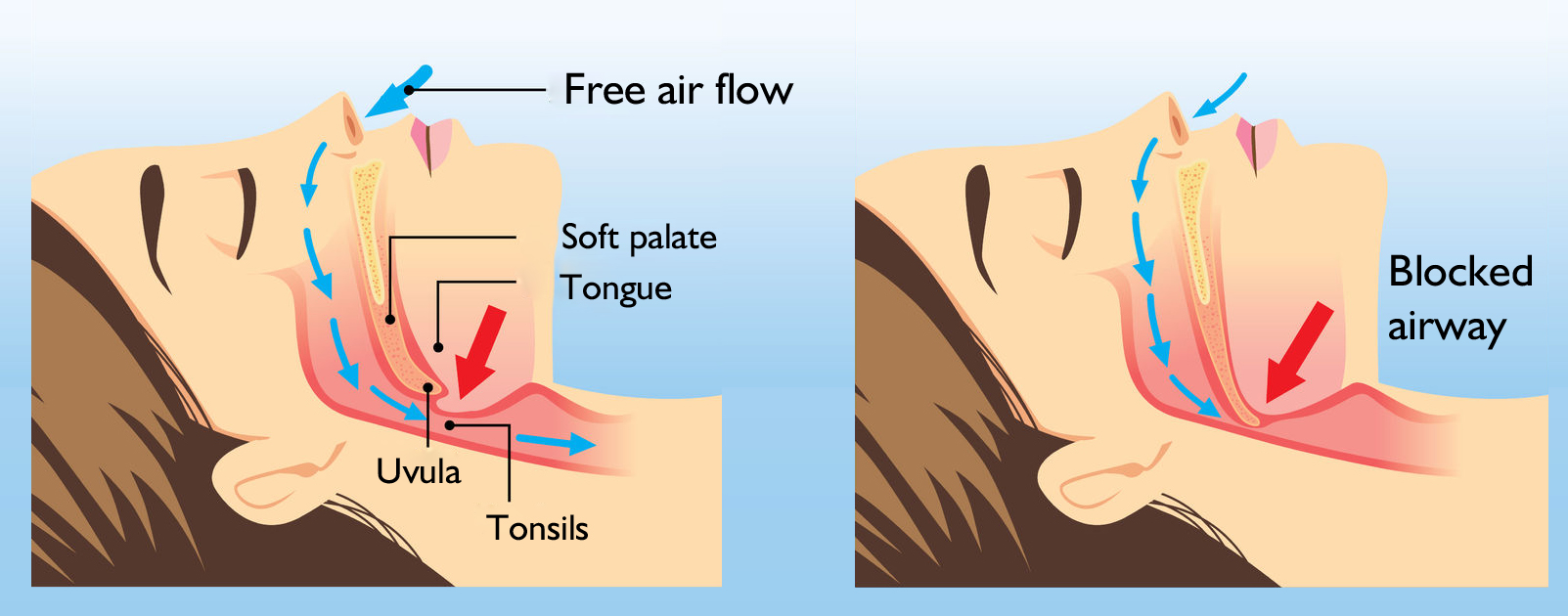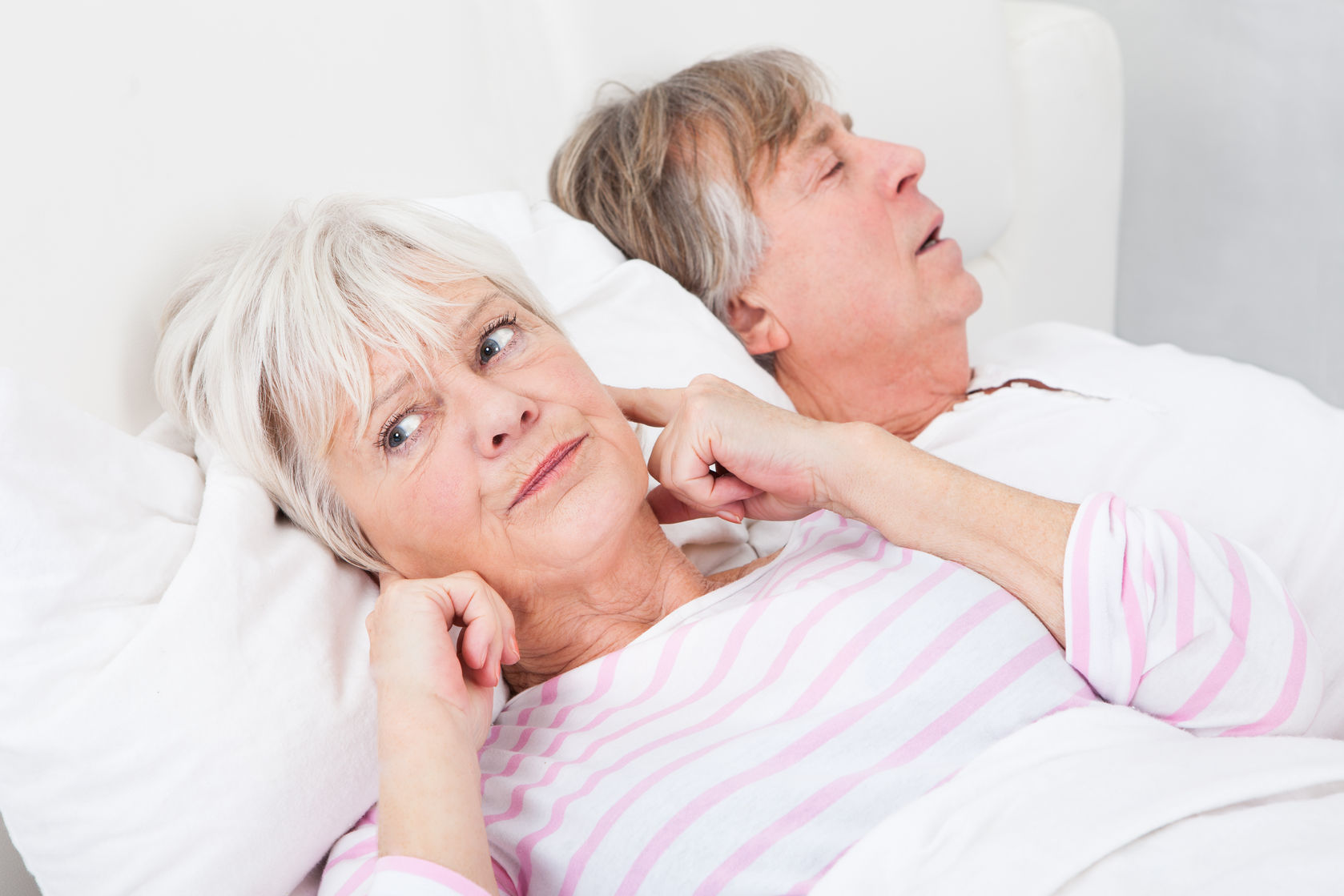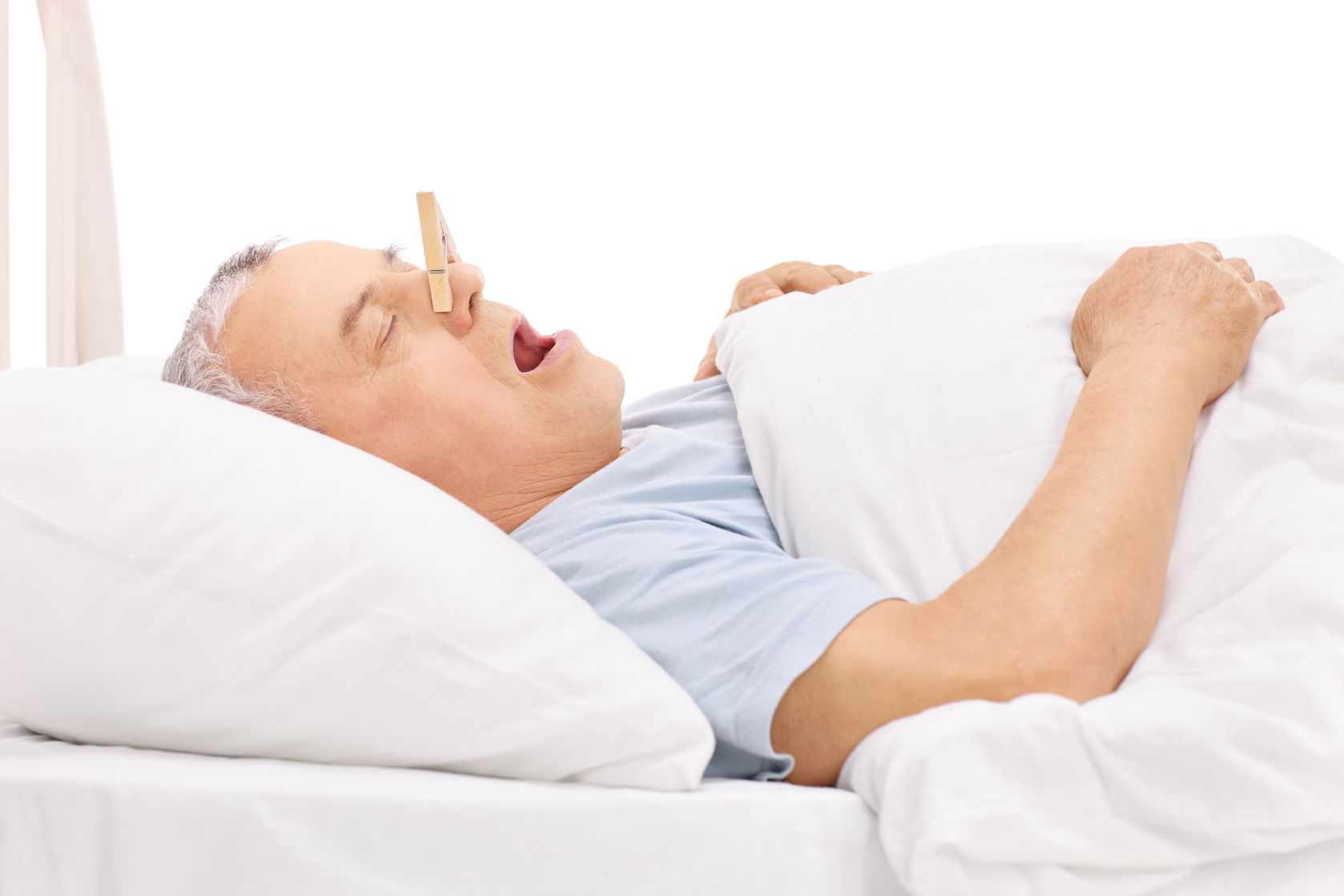Snoring surgery, sleep apnoea treatment
Snoring affects about 10-30% of the adult population and 5% of these people have apnoea (OSAS – obstructive sleep apnoea syndrome) as the pharynx narrows.
In case of more severe sleep apnoea, this process can be repeated more than once in an hour, leading to long-term health damage such as high blood pressure, heart attack, cerebrovascular disorders.
When it comes to sleep apnoea, daytime fatigue, forgetfulness, frequent headache, examination, as well as instrumental sleep examination, and sleep endoscopy are necessary.
Negative consequences of snoring
Sleep apnoea is not in itself a life-threatening condition, but it has serious long-term consequences. In case dyspnoea, the blood oxygen level decreases, but the carbon dioxide level rises, which increases the adrenaline level, which raises the blood pressure and heart rate. As a result, after a longer absence, the snoring person almost jumps up and takes a breath.
And this nocturnal “stress reaction” leads to higher blood pressure in the long run, which is a risk factor for heart attack and stroke.

Statistics show that people with apnoea are forty times more likely to have a heart attack than healthy people. Disturbed sleep at night results in other daytime effects:
- Physical and mental fatigue
- Higher blood pressure
- Cardiac arrhythmia
- Sensory dulling
- Decreased sexual desire
- Psychic issues
According to a study, people with snoring or sleep apnoea cause five times as many accidents – clearly due to prolonged fatigue and difficulty concentrating. The problems of the spouse sleeping next to a snoring person are caused by lack of sleep and issues stemming from this.
When do I need to see a doctor?
If you have occasional snoring that is due to certain external factors (eating a lot, drinking more alcohol, catching a cold), you do not need to seek medical help. If your snoring is mild, does not disturb your environment, your spouse, does not cause fatigue during the day, does not impair your ability to concentrate, then we do not consider it dangerous from a medical point of view. With home practices and lifestyle changes, in many cases such snoring can be eliminated, or at least moderable.
However, if snoring is constant, occurs in all body positions, and causes fatigue and other symptoms, it is important to see a doctor as soon as possible to have your symptoms examined, as insomnia can lead to a road or work accident and, in the long run, high blood pressure, diabetes, stroke, or heart attack.
What are the treatment options?
Since the origin of snoring can vary, therefore treatment options vary accordingly. Usually, lifestyle changes are recommended first by our sleep specialist (somnologist) or otolaryngologist.
These are different in individual ways (weight loss in case of obesity, change of body position during sleep, elimination of harmful habits [drugs, alcohol], introduction of sports, etc.).
There are many tools and preparations for reducing snoring, such as anti-snoring pads, watches, anti-snoring drops, nasal and pharyngeal sprays, nose clips, nasal patches, downloadable anti-snoring applications for the phone, oral surgical prostheses that only bring about temporary improvement.
If the conservative treatments above do not lead to success, surgical solutions against snoring are recommended:
- nasal septum surgery
- mucotomy
- FESS (endoscopic sinus surgery),
- adenoidectomy
- tonsillectomy
- soft palate and uvula surgeries with laser (LAUPP), radio frequency (RAUPP) or even coblation techniques.

Part of the examination of snoring or apnoea in our hospital is called sleep endoscopy. By artificially anesthetizing you, we will have the opportunity to examine the total length of the upper airway with a video endoscope, therefore we can determine exactly the origin of your snoring or apnoea (large uvula, swollen tonsils, nasal septum deviation, etc.). Then the anti-snoring surgery already targets exactly what triggers your snoring and respiratory failure, so any unnecessary surgery can be avoided.

What is the course of the surgical procedure?
The suitability for surgery under anaesthesia or local anaesthesia is decided by our anaesthesiologist or, if necessary, our internist, based on a blood sample, an ECG examination and a chest X-ray.
Laser assisted uvulopalatoplasty surgery (LAUPP) is performed under general anaesthesia. During anti-snoring surgery, the uvula and/or soft palate are reduced with a diode laser. During the radio frequency (RAUPP) and coblation process, we “shrink” the soft palate and uvula with radio frequency and coblation electrodes, usually under local anaesthesia.
If the examination shows a nasal septum deviation, swollen lower nasal concha, nasal polyps, large adenoids, large tonsils, large tongue base, we will recommend a surgical solution to them
What are the advantages and disadvantages of anti-snoring surgery?
In most cases, anti-snoring pharyngeal surgeries significantly reduce, often completely eliminate snoring; apnoea is corrected or eliminated depending on its severity.
The key to a successful anti-snoring surgery is a thorough examination and a preoperative sleep endoscopy. It is important to note that snoring and respiratory failure are often caused by several causes at the same time (e.g. obesity, age, physique, lifestyle, medications). Of course, the surgical solution does not eliminate all of them, non-surgical changes are also needed. The only disadvantage of snoring surgery is the swallowing pain that lasts for 7-10 days after the surgery, which, however, can be completely eliminated with oral analgesics.
What happens after anti-snoring surgery?
After snoring surgery performed under local anaesthesia, you can usually return home within a few hours, and you can leave Medicover Hospital the next day if the surgery is performed under general anaesthesia.
In the 2 weeks after the anti-snoring surgery, a health conscious lifestyle and rest are recommended, it is necessary to avoid activities that raise blood pressure and cause head bleeding, as these can cause post-bleeding. You need to drink plenty of fluids and only eat soft, mushy meals. Drinking alcohol is not allowed.
In the case of uncomplicated recovery, you can return to your job after 14 days, the time of full recovery, the complaint-free state is approx. 3 weeks. Serious physical work, sports are allowed from the 4th week.
Is there a case where anti-snoring surgery cannot be performed?
It does not matter how risk-free LAUPP (snoring surgery) is, it is performed only in case of strict professional indications. There may be health conditions and risks for which surgery or anaesthesia is contraindicated. In such cases, surgery under local anaesthesia is recommended, in some cases dissuading the patient from the surgery. This will always be decided by your doctor during the consultation.
We accommodate our clients in a modern, pleasant, air-conditioned single room. Each room has a private bathroom, fridge and TV, and free WIFI access. We also provide our clients with individual nurse supervision, who will help your continuous recovery during your stay.
